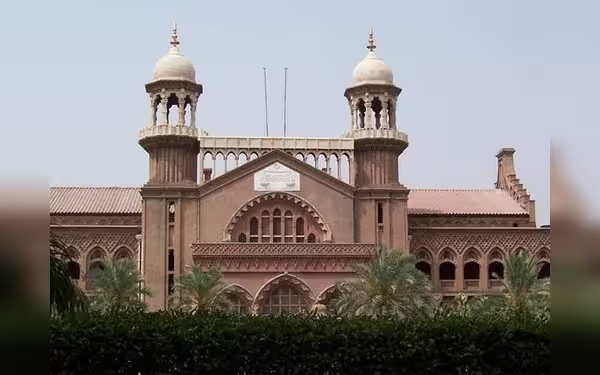Tuesday, July 2, 2024 03:02 PM
Lahore High Court rules against discriminatory child marriage definition
- LHC deems Child Marriage Restraint Act discriminatory based on gender
- Court recommends aligning 'child' definition with age of puberty
- Criticism towards 2015 amendments for deviating from original purpose
 Image Credits: Voicepk.net
Image Credits: Voicepk.netThe Lahore High Court rules against the discriminatory definition of 'child' in the Child Marriage Restraint Act 1929, emphasizing the need for gender equality and clarity in legislation to protect vulnerable individuals.
The Lahore High Court (LHC) has ruled that the definition of 'child' in the Child Marriage Restraint Act 1929 is discriminatory due to its differentiation based on gender and lack of clear criteria. The court highlighted that the disparity in ages for males and females in the Act, as amended in 2015, contradicts the equality principle enshrined in Article 25 of the Constitution.
Article 25 guarantees equal protection under the law without discrimination based on sex. While acknowledging the need for special provisions to safeguard women and children, the court emphasized that the current definition favored males by setting a higher marriage age for females.
The court recommended aligning the definition of 'child' with the age of puberty to establish a more coherent standard. It directed the Punjab government to revise the Act within two weeks to address these discrepancies.
Furthermore, the court criticized the 2015 amendments for deviating from the Act's original purpose of preventing child marriages. It noted that the amendments lacked clarity in their policy objectives and failed to uphold the State's duty to protect marriage, family, and children.
In conclusion, the Lahore High Court's decision underscores the importance of eliminating gender-based discrimination in legislation, particularly concerning child marriage. By calling for a revised Act that adheres to constitutional principles and safeguards the rights of all citizens, the court has taken a significant step towards promoting equality and protecting vulnerable individuals.













